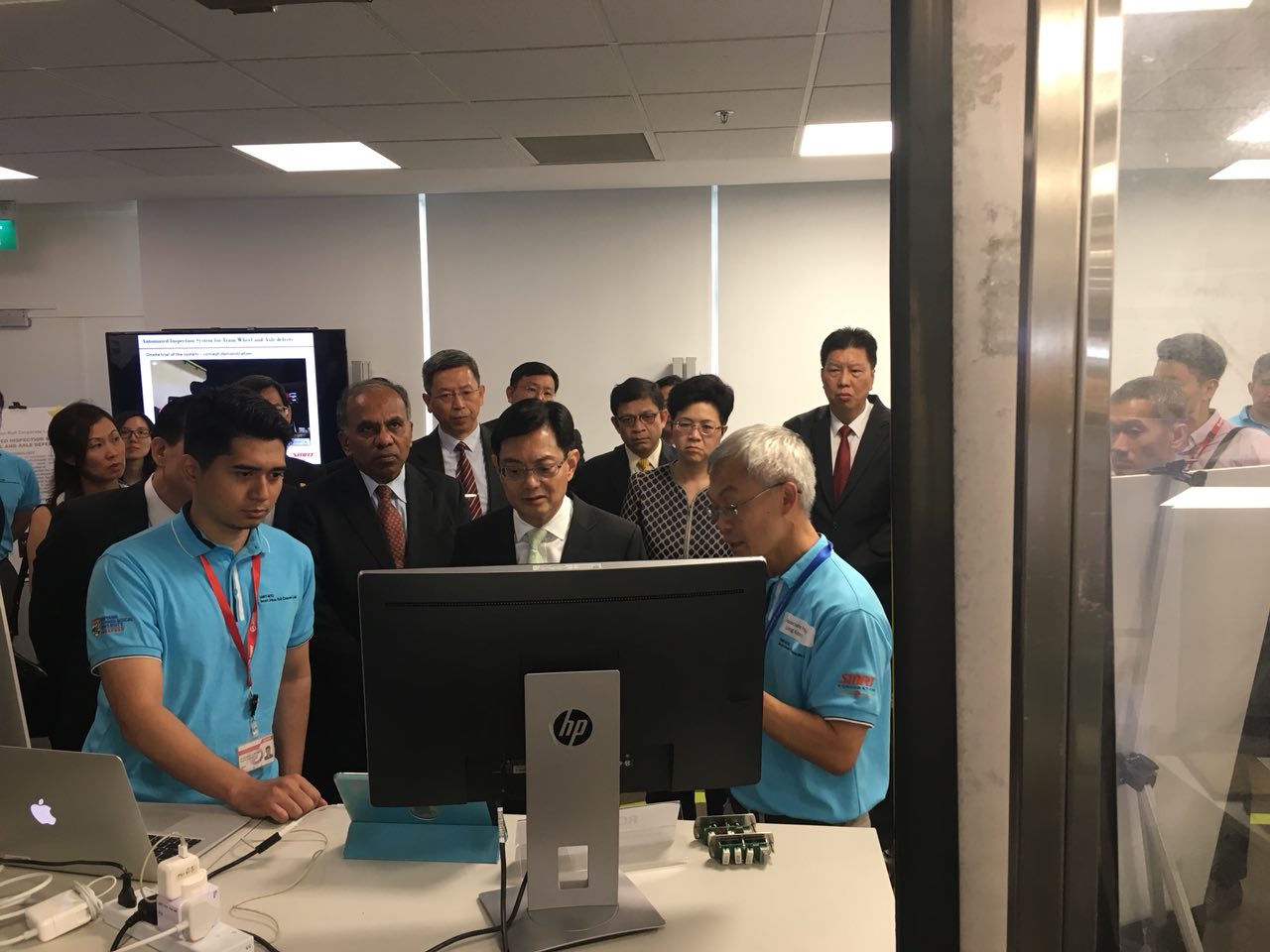SMRT, NTU develop new systems to monitor train door faults, track defects
Sign up now: Get ST's newsletters delivered to your inbox
SINGAPORE - More than half of minor MRT service delays - lasting less than five minutes - are caused by train door faults, but a prototype monitoring system is now being tested to detect issues early so maintenance work can be carried out to prevent problems.
Since June, the sensor system - jointly developed by rail operator SMRT and the Nanyang Technological University (NTU) - has been installed on a set of doors of a train deployed on the North-South and East-West line.
It collects data on air pressure, movement speed and the power supply of the pneumatic train doors, helping engineers troubleshoot faults and better predict when failures will occur.
This advanced train door sensor system is one of 13 research projects that SMRT and NTU are collaborating on at the SMRT-NTU Smart Urban Rail Corporate Laboratory, which is developing monitoring and sensor systems to improve rail reliability.
The lab was officially opened on Wednesday (Aug 29) by Finance Minister Heng Swee Keat, who is also chairman of the National Research Foundation (NRF).
The setting up of the $60 million facility was first announced in 2016, with SMRT, NTU and the NRF providing equal funding. There are 70 NTU researchers and 30 SMRT staff working at the lab, one of 12 corporate labs supported by the NRF. Other research areas include advanced robotics, food-tech and sustainable urban solutions.
Mr Heng said in a speech that the SMRT-NTU lab "aims to drive the effective translation of research into solutions that have direct relevance not just to SMRT, but also to the global transport industry in anticipation of future needs".
The SMRT-NTU lab is timely, said Mr Heng, adding that the urban rail network - which will double in length to 360km by 2030 - is the spine of the Singapore's extensive public transport system.

Associate Professor Ling Keck Voon, from the NTU’s School of Electrical & Electronic Engineering (right) briefing Finance Minister Heng Swee Keat at the SMRT-NTU Smart Urban Rail Corporate Laboratory, on a monitoring system for train doors.
ST PHOTO: ADRIAN LIM
A strong public transport system is needed to sustain public support for the Government's push for a car-lite society, in which walking, cycling and taking public transport is a way of life, Mr Heng added.
"To meet the needs of the people, we must invest in rail engineering capabilities that are tailored to our needs and conditions, and develop new technologies for an efficient and resilient rail network that can operate at a sustainable lifecycle cost," said Mr Heng. Next year, trials for two other projects which have been developed at the lab will kick off.
One is a monitoring system mounted on a train, which can pick up defects on the power rail and running rails. It does this by using radio frequency technology to monitor the electrical contact between the trains and the track. Trials will start in the first quarter of next year.
The second initiative is a portable robot which can inspect train axles at the depot, with trials to start by the second quarter of 2019. This allows for more frequent inspections, which currently can only be done when the train wheels and axles are disassembled from the train bogie.
Another project which was shown to the media on Wednesday is a laser-cladding repair system that uses laser technology to repair defective rails. This is expected to be ready for trials by 2020.
SMRT chief executive Neo Kian Hong said: "We have been putting in a lot of effort to improve rail reliability and sustain the progress made.
"At the same time, we will tap top-notch engineering resources in Singapore to solve problems that affect our train services, such as train door, track or power supply issues," Mr Neo added.
NTU president Professor Subra Suresh said: "The lab will also develop core competencies and nurture engineering specialists to tackle future national transportation challenges and needs, and develop innovative transportation solutions that can be deployed globally."


